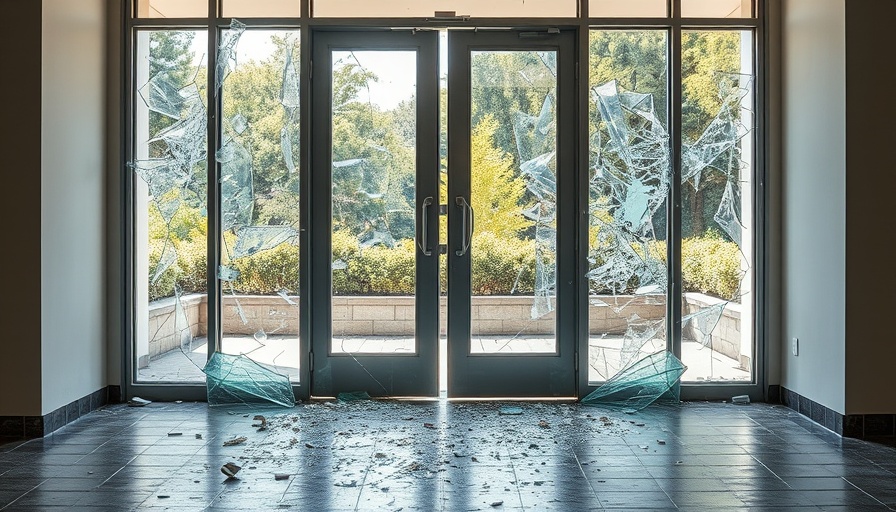
Understanding Hate Crimes: A Growing Concern for All
The release of the latest hate crime statistics in Canada has turned a spotlight on a disturbing trend that is becoming all too familiar: the rise of religiously motivated hate crimes. In 2024, the Canadian Jewish community emerged as the most targeted religious group, with a staggering 68% of reported religious hate crimes affecting them. This stark reality highlights the urgent need for increased protective measures and community solidarity against hate-motivated violence.
The Numbers: A Grave Reflection of Reality
Statistics Canada’s report indicates that hate crimes overall have risen for the sixth consecutive year, totaling 4,882 incidents in 2024. This represents a slight increase from previous years, contributing to a troubling trajectory that has escalated since 2020. Particularly alarming was the segment of this data showing that religiously motivated hate crimes remained steady at approximately 1,342 incidents, with Jewish people bearing the brunt.
The Jewish Community: Life Under Siege
With 920 incidents reported against the Jewish population, it is evident that its community is facing significant challenges. The Jewish population in Canada is not only concerned about their safety but also about the implications these occurrences have on community trust and cohesion. Community leaders, such as Noah Shack from the Centre for Israel and Jewish Affairs, condemned the handling of hate crimes and stressed that leniency in the judicial system undermines public confidence in safety measures. The call for stronger actions to address these issues reflects an underlying fear and grief that disturbingly resonates across Canada today.
Broader Implications: The Ripple Effect of Hate Crimes
The rise in hate crimes targeting Jewish Canadians sends a ripple effect throughout other religious communities, raising questions about the overall climate of tolerance and respect in the nation. It's evident that hate does not discriminate; while Jewish communities face considerable challenges, Muslims and other groups are simultaneously confronting their own struggles with a reported increase in incidents—including a rise to 229 hate crimes documented against Muslims in 2024.
Creating a Safe Environment: What Can Be Done?
It is essential for both governmental and community leaders to examine these startling statistics and devise strategies to combat hatred effectively. Education plays a crucial role; initiatives aimed at fostering understanding and empathy among diverse communities can create a bulwark against the spread of hate. Workshops, community dialogues, and inclusive educational programs can serve as proactive measures to dismantle stereotypes and prejudices.
Engaging Lawmakers: For a Collective Response
The responsibility must also fall upon lawmakers to acknowledge these figures and allocate resources towards their mitigation. Policies that strengthen hate crime legislation and judicial responses should be enacted to foster a more secure environment for vulnerable communities. This includes not only amplifying law enforcement responses to hate crimes but also improving data collection for better understanding and accountability.
The Path Forward: A Call for Unity and Resolve
In light of the 2024 statistics, it’s crucial for all Canadians to rally together in solidarity against hate. Understanding the deeper implications of hate crimes will foster resilience among communities and contribute to a broader cultural shift toward acceptance and diversity. As the Jewish community contemplates these statistics with solemn concern, the call for solidarity resonates louder than ever.
Conclusion: A Collective Responsibility for Change
Take Action Against Hate Today
Breaking the cycle of hate will require the involvement of every member of society. Stand in solidarity with affected communities. Create dialogues that promote respect and understanding. By doing so, we can create a society where religious and cultural diversity is celebrated, not targeted. It is our collective responsibility to make a stand against hate—together, we can foster a safer and more inclusive tomorrow.
 Add Row
Add Row  Add
Add 




Write A Comment